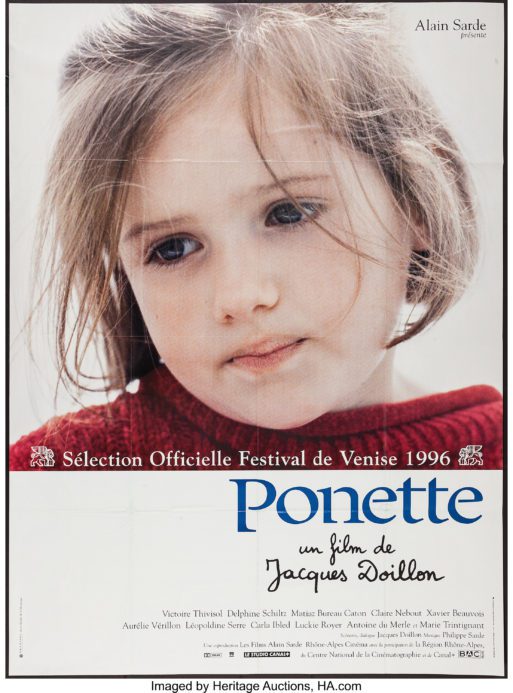 In the American trailer for French director Jacques Doillon‘s 1996 film “Ponette,” the narrator coolly clarifies that this “is not a film about death” but rather “the celebration of life.” By the end of the film, the viewer realizes that this statement rings true – but we also learn that coming to such an understanding is not easy. Living with grief gracefully is not an overnight phenomenon, but a process unique to each individual. In this case, we follow the journey of four year-old Ponette (played by Victoire Thivisol, whose performance rewarded her with a Venice Film Festival prize) of coming to terms with the death of her mother in a car crash.
In the American trailer for French director Jacques Doillon‘s 1996 film “Ponette,” the narrator coolly clarifies that this “is not a film about death” but rather “the celebration of life.” By the end of the film, the viewer realizes that this statement rings true – but we also learn that coming to such an understanding is not easy. Living with grief gracefully is not an overnight phenomenon, but a process unique to each individual. In this case, we follow the journey of four year-old Ponette (played by Victoire Thivisol, whose performance rewarded her with a Venice Film Festival prize) of coming to terms with the death of her mother in a car crash.
Watching Ponette digest the passing of her mother is a difficult but cathartic experience for the viewer, if only for the fact that so many of us can identify with her “child-like” perspective after the death; the loss of a loved one can make us feel dazed, humbled — oddly small in our understanding. When we speak of Ponette’s age, we thus refer not only to the naiveté that being a child brings, but the feeling of inexperience and sudden helplessness that so many of us have after an unexpected loss.
“When we speak of Ponette’s age, we thus refer not only to the naiveté that being a child brings, but the feeling of inexperience and sudden helplessness that so many of us have after an unexpected loss.”
If there’s one thing Ponette can’t accept, it’s that she won’t “see her mother again.” Her father cruelly tells her to “cut it out,” but her aunt tells her about the resurrection of Jesus to reassure her that she will “join her mother at a later time.” Ponette holds fast to this notion, making it into a sort of life preserve between her and her mother in her mind. Ok, she thinks, but how soon can I join her again?
“Ponette holds fast to this notion, making it into a sort of life preserve between her and her mother in her mind.”
Many scenes walk the line between reality and imagination, not unlike the actual post-death experience of those surviving a loved one – and Doillon’s mastery would certainly turn Cocteau’s head. Doillon’s film presents a beautiful play between the dynamics of a family after a tragic loss, and the realization that strength and grace know no age.

 Ponette (1996) by Jacques Doillon
Ponette (1996) by Jacques Doillon


 Debating Medical Aid in Dying
Debating Medical Aid in Dying
 “Help Me, Helen”
“Help Me, Helen”















